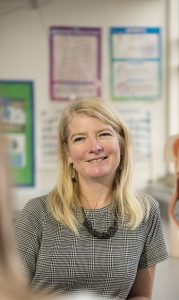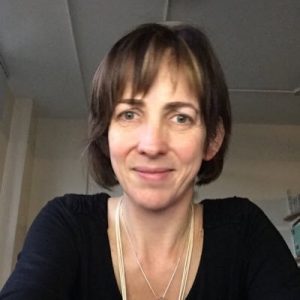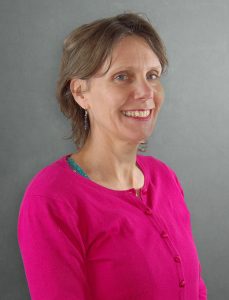According to Wikipedia ‘The Three Doctors’ is the first serial of the tenth season of Doctor Who, first broadcast from 30 December 1972 to 20 January 1973. It featured the first three Doctors which made it the first Doctor Who story in which an earlier incarnation of the Doctor returns to the show.’ Now, 43 years later we offer a new narrative of the Three Doctors, and we are celebrating ‘the power of three’. In the last twelve months we (three Education colleagues from CfLaT in ECLS) have been successfully completed our PhDs by publication. Despite the fact that at many times in the past our achievements have felt like remote and impractical goals, we can now proudly add ‘Dr’ to our name. In universities many academics only start their careers after they have been awarded PhDs, but in schools like ours this is not always the case. There are legitimate reasons to recruit lecturers and researchers with professional knowledge and skills-sets and allow them to build academic interests and trajectories once in post. We are pleased to be able to point to each other and share the fact that this can be done!
So what does our work for PhDs for publication consist of? Well each of us has a unique publication profile, and this is what we drew upon to write the final doctoral statements and to engage in examination by viva. Collectively our PhDs include 23 publications in total, published over 20 years (if counted back to back). Of these there are 20 peer-reviewed articles (in 11 different journals), 3 chapters or book contributions, and 3 research reports. Alongside single-authored publications we have had the privilege of working with 15 co-authors, 11 of whom are (or were) ECLS colleagues and 4 of whom were partners from other universities and professional colleagues. Those numbers are one way to illustrate the range, depth and reach of our work. What follows are three paragraphs which describe what our work is about. You can find out more about the publications by accessing our staff profiles.
Dr Jill Clark – The journey of researching on to researching with – theoretical and methodological challenges with educational research
In my thesis I discussed the structural (and challenging) issues of arranging participatory research whilst recognising the value of it. In practice, as researchers, we are constrained (to a greater or lesser extent) by the needs of funders, and commissioners.
Throughout my work, I have been developing ideas on how visual methods in particular can be participatory and why visual research methods work based on the ideas of participation. In my thesis I suggest that we can manage a research encounter with reference to visual methods and the added value that this can bring to participatory research. I first raised the question of whether certain methods are more appropriate to particular groups of participants and whether there is a benefit to using a range of methods over attempting to identify one successful method. What I have learnt is that participatory research it is not simply a matter of grafting a few new techniques onto a ‘traditional’ research process.
In my thesis I articulated the benefits that visual methods in addition to participatory research can bring. The argument is based on the premise that by being participatory and inclusive we can seek the views of as wide a range of participants as possible. I agree with other researchers that participatory methods can produce ‘better’ knowledge than other techniques. By using visual methods then we are able to ask things in a different way, thus generating a combination of views from many different people. This in turn can generate different types of knowledge, leading to a more complete research process and therefore the research as a whole is better.
Dr Rachel Lofthouse – Metamorphosis and meaning: developing exemplary knowledge for teacher education
I have used my PhD to answer two core questions: 1) How has my practice as a university-based teacher educator shaped my understanding of professional learning? 2) How has my scholarship led to the creation of models of professional learning and how might these models be of value in practice?
During the period of research, and with an accelerating pace, teacher educators have been forced to rapidly adapt to new policy initiatives for teacher ‘training’ and professional development in England. This coincides with a time when schools are dealing with ever-increasing demands to ‘perform’ in relation pupil attainment. This socio-cultural backdrop creates new dependencies, for example raising the demands on those within and joining the teaching profession to create a ‘self-improving school led system’. It opens up opportunities for professional learning, but also creates tensions as activity systems collide. The publications of this PhD represent a variety of lived experiences of educational practice – either mine or teachers’. My research and experience has contributed the development of models of professional learning which have evolved through the duration of my critical reflection on my publications and current research and practice. This leads me to propose a practice development led model for individual professional learning and institutional growth, the metamorphosis of which is articulated through the doctoral statement.
Dr Maria Mroz – Recognition and support of children with speech, language and communication needs: knowledge, policy and practice.
The thesis considers how teachers firstly recognise and then support children with speech, language and communication needs (SLCN) and secondly how specific activities provided by the university might enable mentors to support trainee teachers’ understanding of language development. It discusses how the three elements of: teacher knowledge of language development, the reality of practice and the impact of policy might influence the identification and support of pupils with SLCN. The thesis uses a variety of research methods including interview, questionnaire and desk-based research.
Teachers wish to identify and support children with SLCN but need further training and assistance to do this due to both the heterogeneous nature of the group and the complexity of the teacher role. Teacher knowledge of language development is shaped by their interactions between their personal understanding of teaching and learning, the practice in their environment, the pupils they teach and the policies they work within (Day et al., 2006), all of which can impact upon their capacity to identify and support children with SLCN. Finally University and school partnerships have the potential to develop students’ knowledge language development although a number of factors need to be addressed to ensure greater realisation.



